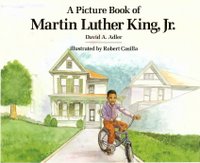Beyond FRESHMAN YEAR: Whiteness Class at the University of Colorado
 Many universities in the U.S. now offer classes on “whiteness,” courses which turn the racial lense on white students and assess the role of white privilege in the history of American race relations. A quick Google search reveals that schools like Tufts, the American University, Amherst College, Georgetown, and Brown all host classes with names like “Whiteness and Racial Difference.”
Many universities in the U.S. now offer classes on “whiteness,” courses which turn the racial lense on white students and assess the role of white privilege in the history of American race relations. A quick Google search reveals that schools like Tufts, the American University, Amherst College, Georgetown, and Brown all host classes with names like “Whiteness and Racial Difference.”Last week, the Denver Post ran a story by staff writer Jennifer Brown entitled “Whiteness class at CU prompts colorful debate.” Racial tensions have been high on the campus of the University of Colorado at Boulder, so it’s not surprising to see that a racially-based course in the CU curriculum might get some attention.
Rather than applaud universities and their professors for offering white students the opportunity to discuss racial issues, critics claim that such courses on “whiteness” not only promote “white guilt,” but blame social ills of all sorts on the pervasive problem of white privilege. Advocates, however, encourage American colleges to help promote open dialogue on racial issues by continuing to make such courses part of a widely accepted—and expected—mainstream curriculum. As CU professor Duncan Rhinehart stated in the Post article, “As long as whiteness is invisible, it’s contributing to inequality and injustice.” And as long as we keep lines of communication open, hope remains that equality and justice will prevail…even at CU.













